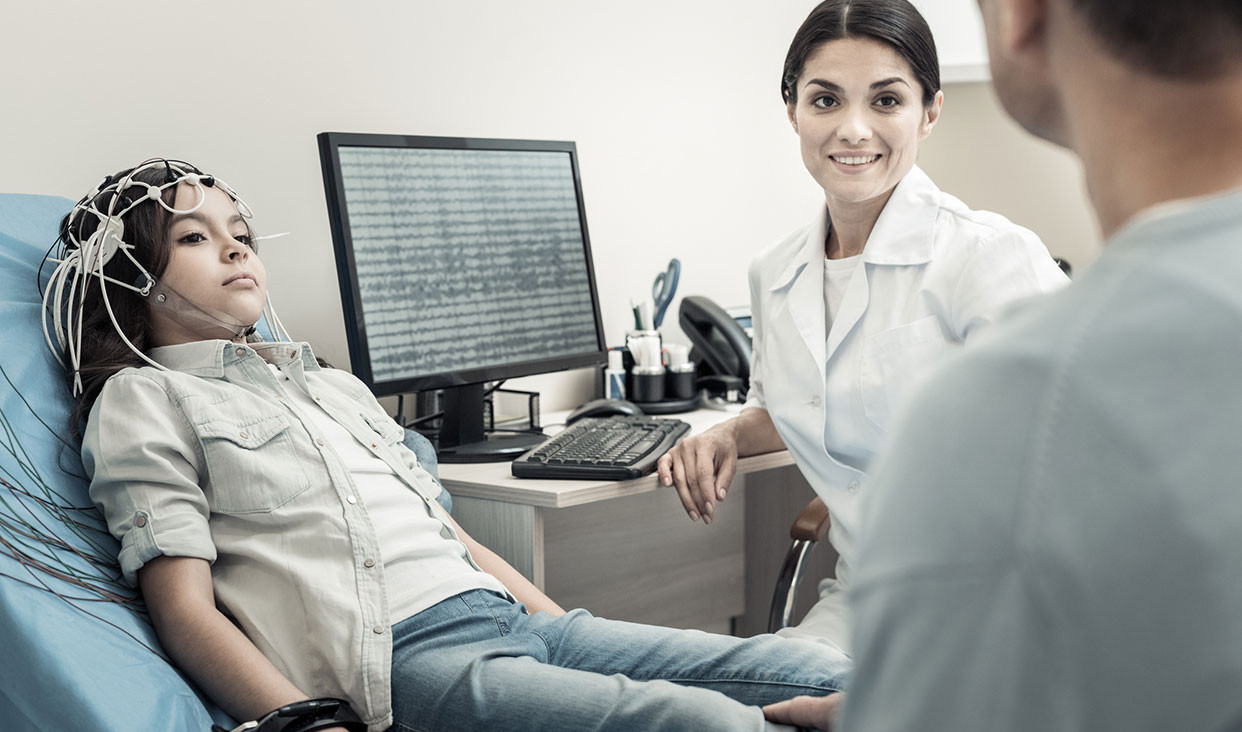- Medication Antiseizure medications (ASMs) are usually the first choice, and 60% to 70% of pediatric patients respond to them.
- Ketogenic and Modified Atkins Diets
The ketogenic diet is a high fat, adequate protein and very low carbohydrate diet. It works by changing how the brain produces energy to function. Although the mechanism is poorly understood, ketogenic diets have successfully reduced seizures in many patients since the 1920’s.
In our hospital the ketogenic diet team that monitors the child’s progress includes highly experienced pediatric neurologists, pediatric nutritionists and well trained nurses.
- Surgical Treatments
Surgical options are recommended for drug resistant epilepsy (DRE) patients and should be extremely tailor-made depending on the individual child’s condition. After collecting all of the data via EGG monitoring or, if needed, MRI and/or PET scans, we will only proceed if we can find the spot that produces seizure discharge and can get rid of it with minimal side effects.
- Vagus Nerve Stimulator (VNS)
Our hospital has VNS which is considered an advanced alternative option for drug resistant epilepsy, epilepsy with multiple seizure spots, or epilepsy with unidentifiable seizure spots. This device shortens a seizure’s duration, frequency and severity, depending on the type of seizures that the child has been facing.
Physical and occupational therapy
Some children will experience temporary motor deficits after surgery. This requires optimal preoperative, postoperative and follow-up care, and is the main reason that rehabilitation is an important part of the treatment process for epileptic children. Our Physical, Occupational and Speech Therapists Teams work closely with the patient and their family as soon as they are cleared after neurosurgery. Our treatment goal is to maximize cognitive function and obtain the best quality of life for children with epilepsy.
Samitivej Hospital won the ‘Best Hospital in Pediatrics and Best Physiotherapist’ Award from Middle East Healthcare in 2016 and 2017
Children with less severe cases may fully recover after 2 years of medication, but for some complex cases they may need lifelong medication. In the latter case, those with focal seizure whose symptoms may be controlled with ASM may also opt for surgery as a treatment option, allowing a reduction in medication and complications in some children.
Our experienced pediatric neurologists provide proper assistance to all our patients, physically and virtually. The patient and caretakers can discuss their situation with us before they visit through the hospital’s virtual consultation channel to save time and effort and to quickly begin receiving proper treatment.

